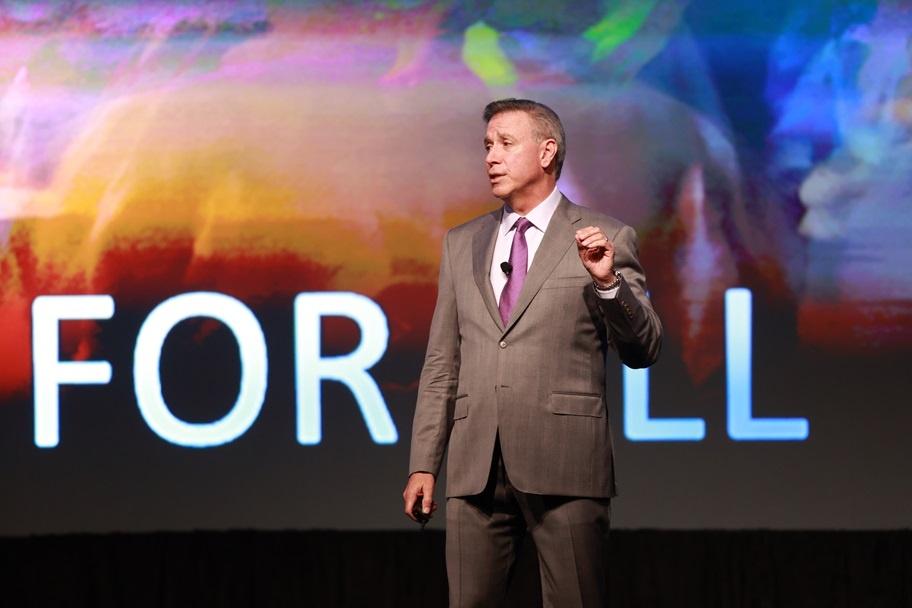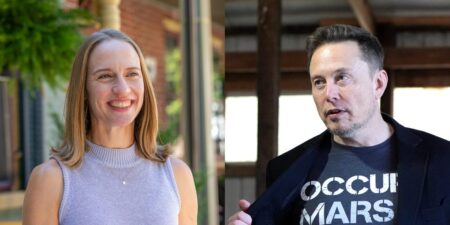As decarbonization and energy transition efforts gather momentum across the global industrial and manufacturing complex, specialist process software firm AspenTech (NASDAQ: AZPN) is “uniquely positioned” as an optimization enabler and a “co-innovator”, according to its boss.
“From modelling simulated molecules for sustainable fuels to managing and optimizing electrons, we bring digital capabilities specifically geared, and often co-developed, to meet the needs of multiple processes and industries,” Antonio Pietri, Chief Executive Officer of AspenTech, said in an exclusive interview on the sidelines of OPTIMIZE24, his company’s thought leadership event in Houston, Texas, U.S.
“Everyone is now onboard with decarbonization, and doubling energy efficiency by 2030 [a COP28 target] sits well with us an industrial software company. The last three years have been particularly transformational both for us and as well as our customers in the energy and industrial space.”
Joining the dots
With more and more of its customers focusing on optimized throughput and capabilities for decarbonizing in the transition era, AspenTech is helping them join the dots between both.
“We have functionality in our software products that are very specific to the energy transition and decarbonization. The first release of these was just a couple of years ago. Today we have 144 specific application templates across all of our products and solutions that help our customers accelerate decarbonization from emissions management to re-imagining processes. Over 66,000 customers have accessed these.”
Pietri noted that the move was not necessarily about “floating new products” or gimmickry in a fiercely competitive energy and industrial software market. “Rather it’s about bringing forward the capability of the solutions we have developed behind the scenes for decades for a rapidly transforming market.”
The company’s flagship AspenONE product suite for industrial optimization remains its mainstay, underpinning wider commercial moves both new and old in a changed landscape.
Asked for a glimpse, Pietri said: “We find European refiners who crack traditional hydrocarbons producing bio-fuels having reshaped their processes in partnership with us to facilitate the latter. In tandem, we alo have American companies like Tesla who are using our engineering models and simulation solutions to model their electrical batteries.
“In the Middle East, you see us providing entire value chain optimization solutions, especially in the United Arab Emirates, one of the keenest markets for a low carbon future.
“We are equally comfortable with process solutions for emissions reduction and management to, in the fullness of time, using CO2 as a raw material, or for that matter hydrogen power storage or decomposing plastics to fuel – all of which are new use cases where our software has the capability and functionality to be leveraged.”
Many such opportunities are arising out of what Pietri described as “co-innovation” with carbon conscious participants in a wider industrial ecosystem.
A transformed brand
AspenTech itself is a brand transformed, Pietri added, alluding to his company’s strategic transaction with Emerson (NYSE: EMR). The deal, which closed in May 2022, saw Emerson contribute $6 billion in cash to AspenTech, banked by its shareholders, in exchange for a 55% majority stake in the company.
It also saw Emerson and AspenTech enter an enhanced commercial partnership that has enabled the latter to penetrate new and existing markets. “As part of the transaction, we took Emerson’s Open Systems International Inc. and Geological Simulation Software businesses on to our portfolio.”
Pietri claimed the financial and operation synergy the transaction facilitated gives AspenTech an enhanced and timely foothold in the business of global electrification.
This includes a very lucrative market for grid management solutions as industrial software vendors compete to make the grid more climate resistant and counter the intermittency of renewable energy; an exponential power source for the planet.
Later in his keynote address to OPTIMIZE24, Pietri laid out how the move had helped AspenTech expand domain expertise from its traditional base in energy, chemicals and engineering and construction, to operations in electrical and gas utilities, metals and mining and pharmaceuticals.
“We see incremental investment in clean energy and affordability as a huge business opportunity, and an evolving mission, strategy and priority, for our clients and ourselves.
“For instance, Eni, Dow, ExxoMobil, Tennet, YPF, OMV and Sabic are companies with different process optimization priorities and use cases for our software. But the common binding factor is a lower carbon footprint, coupled with efficiency, safety and reliability.”
To cite an example, Pietri flagged the world of global refining. “In this segment alone, not only have our solutions resulted in improved profitability of $59 billion per year, but also resulted in 16 metric tons of CO2 emissions reduction to go with it.”
Elsewhere, the AspenTech boss said artificial intelligence (AI) is already part of a holistic approach to asset optimization around the word. For its part, his company had graduated from being early adopters of AI in the past decade to fully harness its power for clients.
“Of course, there will be different expectations of how AI software works, with constraints and guardrails, in a results driven business. We are deploying AI conscious of its positive potential, and in a manner that our customers both understand and are comfortable with.”
Read the full article here
















